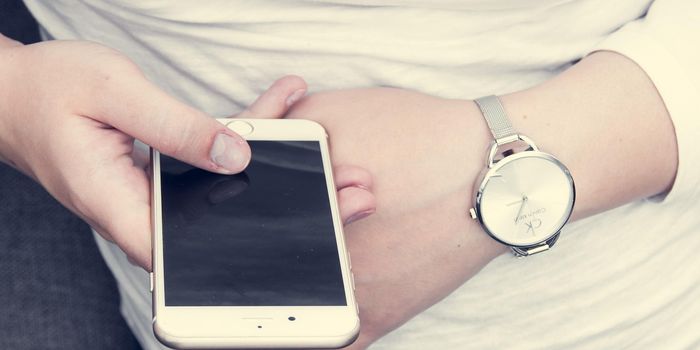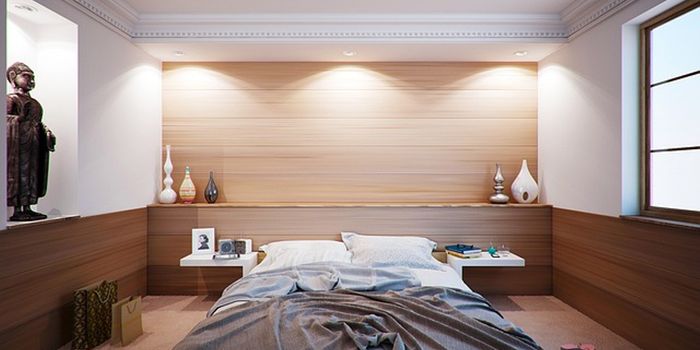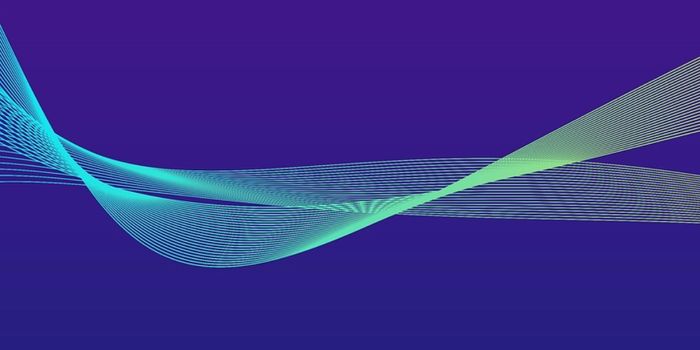Bedtime Smartphone Habits Could Lead to Temporary Blindness
How many of us go to bed with our smartphone in our hands? “Just five more minutes before I fall asleep,” we tell ourselves. Often our screen is the only illuminated light in the otherwise dark bedroom. But we may want to think twice about this habit, as doctors have recently diagnosed two women with a new condition called smartphone “blindness,” caused by constantly looking at a smartphone in the dark.
Smartphones have become ubiquitous and essential gadgets in our modern society. With the estimated 2.6 billion smartphone subscriptions globally, nearly everyone has a smartphone nowadays. In addition, the number of users is only expected to grow, as experts predict there will be 6.1 billion smartphones in circulation by 2020.
These gadgets are fantastic resources to stay connected all the time, but there are real, documented physical side-effects of being an avid smartphone user. And for two women in the United Kingdom, their eyesight paid the price for their smartphone addiction in bed.
The first woman was a 22-year-old who reported vision trouble in her right eye while she was in bed at night, though the vision in her left eye was normal. Though these episodes didn’t last long, they persisted for multiple times per week for a year.
In a similar story, a 40-year-old woman experienced vision loss in one eye early when she woke early in the morning. Like the first patient, her vision loss was temporary, lasting around 15 minutes, but consistent for a span of 6 months.
When doctors couldn’t find any underlying medical causes, like blood clots or retinal degeneration, for the temporary blindness, they began probing the daily habits of these women. As it turns out, both women shared a habit of looking at their smartphones in the near dark while laying on their side. In this position, one of the eyes was blocked by the pillow, while the other one was exposed to a bright screen. This creates two different conditions for the eyes: one that’s adapted to dark, and one that’s adapted to light. And when the screen is turned off, the light-adapted eye is not properly adjusted to the darkness, leading to a temporary “blindness.” In the same vein, this is why we experience temporary blindness when transitioning from a bright outdoor space to a dim indoor space.
"What the patients are aware of is the differing visual experience between a light-adapted eye … and a dark-adapted eye … at low ambient light levels," the doctors concluded. "As they can see well with the dark-adapted eye, it seems to them that they have lost vision in the eye which — a moment ago — was viewing the smartphone normally."
The doctors tested this hypothesis on themselves. They looked at their smartphones with one eye in the dark, and experienced similar vision loss in the light-adapted eye.
"Our cases show that detailed history-taking and an understanding of retinal physiology can reassure both patient and doctor [in these cases], and can avoid unnecessary anxiety and costly investigations," the doctors wrote.
Already, we know smartphones can negatively impact our posture, sleep cycle, and attention span, among other conditions. These cases should serve as yet another warning for us to understand the risks involved with being too connected to our smartphones.
Additional source: Live Science









